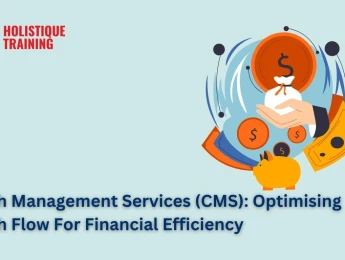Organizing a successful sports event requires careful planning, seamless coordination, and expert execution. This practical training course equips participants with the essential tools and knowledge to manage sports events professionally—from the initial concept design to the final event day operations.
Through a focus on logistics, risk control, stakeholder collaboration, and on-site delivery, learners will develop the ability to handle every aspect of sports event management with confidence. Whether it’s a local tournament or a major international event, this course offers the strategies needed to create impactful and well-organized sports experiences.
By the end of this course, participants will be able to:
- Plan, organize, and deliver sports events from start to finish.
- Manage logistics, operations, and resources effectively.
- Ensure compliance with legal, safety, and sporting standards.
- Develop risk management and contingency strategies.
- Coordinate efficiently with teams, sponsors, and service providers.
- Design engaging experiences for athletes and spectators.
- Measure the success of sports events and apply lessons for improvement.
This course is ideal for:
- Sports event managers and coordinators.
- Staff of sports clubs, federations, and associations handling event duties.
- Venue and stadium managers responsible for event operations.
- Contractors and consultants offering services for sports events.
- Professionals entering the sports management field.
This training blends case studies, real-world sports event scenarios, group workshops, and visual learning. Participants will engage in simulations, collaborative planning exercises, and practical discussions to translate theory into actionable event management skills.
Day 5 of each course is reserved for a Q&A session, which may occur off-site. For 10-day courses, this also applies to day 10
Section 1: Foundations of Sports Event Management
- Understanding the sports event landscape.
- Key success factors in sports event delivery.
- Defining objectives, scope, and target audiences.
- Aligning event plans with strategic and sporting goals.
- Event feasibility studies and budgeting basics.
- Stakeholder mapping and engagement strategies.
- Ethics and professionalism in sports event management.
Section 2: Event Planning and Timeline Management
- Building a detailed event planning calendar.
- Setting milestones and critical deadlines.
- Coordination across teams and committees.
- Sponsor and partner engagement planning.
- Managing registration, ticketing, and accreditation processes.
- Communication planning for pre-event promotion.
- Creating contingency plans and backup strategies.
Section 3: Operational Logistics and Resource Management
- Layout planning: Field of play, spectator zones, VIP areas.
- Logistics of transportation, accommodation, and catering.
- Staffing needs assessment: Volunteers, officials, support crew.
- Vendor management: Contracts, deliverables, and timelines.
- Facility readiness: Utilities, equipment, and signage.
- Waste management and environmental considerations.
Section 4: Risk, Safety, and Compliance
- Risk identification and mitigation planning.
- Legal obligations for sports events (permits, insurance, etc.).
- Athlete, spectator, and staff safety protocols.
- Medical and first aid arrangements.
- Emergency response planning and drills.
- Working with security teams and local authorities.
- Incident reporting and crisis communication frameworks.
Section 5: Marketing and Public Engagement
- Creating a marketing plan for sports events.
- Leveraging digital platforms and social media for promotion.
- Sponsorship acquisition and activation strategies.
- Building media partnerships for wider coverage.
- Community engagement initiatives.
- Branding and merchandising opportunities.
- Managing public relations and media on event day.
Section 6: Delivering the Event Experience
- Managing event-day flow and schedules.
- Coordinating opening ceremonies, competitions, and awards.
- Enhancing fan and spectator engagement onsite.
- Using technology for ticketing, information, and updates.
- Real-time problem-solving and decision-making on the ground.
- Volunteer coordination and team briefings.
- Post-event celebrations and official closing procedures.
Section 7: Evaluation and Continuous Improvement
- Conducting post-event evaluations.
- Gathering feedback from participants, sponsors, and spectators.
- Analyzing event performance using KPIs and metrics.
- Reporting to stakeholders and sponsors.
- Documenting event outcomes for professional portfolios.
Upon successful completion of this training course, delegates will be awarded a Holistique Training Certificate of Completion. For those who attend and complete the online training course, a Holistique Training e-Certificate will be provided.
Holistique Training Certificates are accredited by the British Accreditation Council (BAC) and The CPD Certification Service (CPD), and are certified under ISO 9001, ISO 21001, and ISO 29993 standards.
CPD credits for this course are granted by our Certificates and will be reflected on the Holistique Training Certificate of Completion. In accordance with the standards of The CPD Certification Service, one CPD credit is awarded per hour of course attendance. A maximum of 50 CPD credits can be claimed for any single course we currently offer.
- Course Code IND15 - 127
- Course Format Classroom, Online,
- Duration 5 days











